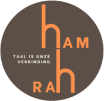By Hamrah – Workplace Language Training for Social Return On Investment
Table of Contents
- Executive Summary
- The Dutch SROI Landscape: Context and Obligations
- Challenge 01: Lack of Unified SROI Standards Across Municipalities
- Challenge 02: Limited Access to Trusted SROI Implementation Partners
- Challenge 03: Internal Knowledge Gaps and Limited Ownership
- Challenge 04: Measurement, Monitoring, and Documentation Complexity
- Challenge 05: Underutilization of Long-Term SROI Value
- Spotlight: Language Training as a Proven SROI Strategy
- Case Insight: Real-World Language Training for Inclusive Hiring
- Conclusion: Turning Obligation into Opportunity
- References and Resources
Executive Summary
The Netherlands leads Europe in embedding Social Return on Investment (SROI) in public procurement policies. Whether through municipal tenders, infrastructure projects, or education-related contracting, Dutch businesses increasingly face formal SROI obligations. Yet, most organizations struggle with ambiguity, implementation capacity, or finding scalable solutions.
This whitepaper explores five practical challenges in SROI implementation and outlines how companies can integrate workplace language training as a smart, compliant, and socially valuable strategy.
The Dutch SROI Landscape: Context and Obligations
SROI in the Netherlands typically mandates that 5% of the contract value be reinvested into activities that yield measurable social value, such as:
– Employing individuals with a distance to the labor market
– Providing internships, re-skilling, or reintegration programs
– Investing in workplace facilities, training, or mentoring
“Social Return is increasingly anchored in procurement policy across Dutch municipalities, provinces, and national government entities.”
— PIANOo (Public Procurement Expertise Centre)
The approach is guided by frameworks from:
– https://www.pianoo.nl
– https://www.uwv.nl
– https://www.cbs.nl
Each municipality may define and enforce SROI targets differently, which adds operational complexity for contractors.
Challenge 01: Lack of Unified SROI Standards Across Municipalities
Dutch municipalities have different definitions and interpretations of SROI. For example, while Amsterdam recognizes language training as an SROI activity, other cities may not unless pre-approved. This inconsistency often creates planning confusion and delays.
Solution:
– Partner early with a provider that works across municipalities (like Hamrah)
– Review tender requirements via https://www.tenderned.nl or municipality-specific portals
– Request a pre-validation of your proposed SROI activities with the contracting authority
Challenge 02: Limited Access to Trusted SROI Implementation Partners
Finding a qualified, reliable, and scalable partner who can execute SROI programs (e.g., job coaching, workplace training) is challenging, especially under time constraints.
Solution:
– Work with registered social enterprises or certified training providers
– Leverage tools like the Maatschappelijk Impact Platform (https://www.impactplatform.nl)
– Vet partners who can provide outcome-based reporting and evidence of impact
Hamrah Example:
Hamrah offers Dutch language at work (vaktaal) and skills training (Linke VCA and Rhino 3D modeling) tailored to employees, refugees, and migrants. To meet the growing labor market demand, Hamrah developed LinguaLinQ—an advanced AI-driven platform that delivers profession-specific language and skills training for diverse language learners. Tailored to real-world industry needs, it offers flexible upskilling and reskilling solutions for both employees and job seekers. Programs are delivered with attendance tracking, integration reports, and municipal alignment—making them highly SROI-compliant.
Challenge 03: Internal Knowledge Gaps and Limited Ownership
Many companies delegate SROI to procurement or HR teams without equipping them with the necessary tools or authority. This leads to ad hoc, compliance-driven approaches rather than strategic integration.
Solution:
– Appoint an internal SROI Coordinator with clear KPIs
– Create an SROI integration checklist during the tender phase
– Train leadership teams to understand the long-term business value of social return
Challenge 04: Measurement, Monitoring, and Documentation Complexity
Tracking progress, especially for intangible outcomes (like skills or social inclusion), remains one of the top barriers to SROI compliance.
According to CBS, as of 2023, only 28% of small and medium enterprises (SMEs) feel confident measuring social impact in a standardized way.
Source – https://opendata.cbs.nl/statline/
Solution:
– Use digital tools for impact monitoring (e.g., https://socialhandprint.org )
– Ensure your provider delivers progress and completion reports
Challenge 05: Underutilization of Long-Term SROI Value
Many companies adopt a checklist mentality—fulfilling the SROI quota without integrating it into their broader social, diversity, or sustainability strategy.
Solution:
– Treat SROI as part of your ESG framework
– Share outcomes with your community and clients—turning compliance into PR
– For example, publishing SROI impact stories on LinkedIn or in ESG reports creates transparency and trust
Spotlight: Language Training as a Proven SROI Strategy
- Recognized by several Dutch municipalities
- Recognized as social entrepreneurs with PSO30+ certification
- Addresses both employment integration and skill development
- Develops sector specific tailor made langue training
- Practical in sectors like logistics, healthcare, construction, and cleaning logestics.
Data Insight (CBS 2025):
Sector-Specific Target Groups with Language Deficiencies
- Healthcare: 1.5 million employees, of which 10% have language deficiencies
- Construction: 500,000 employees, 13% with language deficiencies
- Manufacturing/Industry: 600,000 employees, 14% in need of language support
- Transport & Logistics: 400,000 employees, 12% in need of language support
- Hospitality: 400,000 employees, 12% in need of language support
- ICT: 350,000 employees, 5% in need of language support
- Education: 300,000 employees, 5% in need of language support
- Public Administration: 200,000 employees, 5% in need of language support
By offering workplace Dutch language training, employers can:
Sector-Specific Target Groups with Language Deficiencies
- Language training improves communication on the work floor.
- It enhances employee understanding of instructions, procedures, and safety protocols.
- Stronger language skills reduce mistakes and increase productivity.
- It supports better collaboration with colleagues and engagement with clients.
- Language training promotes inclusion and equal opportunities in diverse teams.
- Especially critical in sectors like healthcare, construction, and logistics.
- Investing in language training strengthens workforce performance and reduces risk.
Case Study: Dutch Language Training for Workplace Safety Communication
Client: Mid-sized energy company, Rotterdam
Challenge:
Several highly skilled employees faced language barriers that limited their ability to communicate effectively with colleagues—particularly about safety procedures. As a result, they were unable to qualify for promotions despite their technical competence.
Solution:
Hamrah developed a tailor-made Dutch language training program focused specifically on workplace safety communication. The training included industry-specific terminology, safety protocols, and real-life scenarios relevant to the energy sector.
Results:
- 85% training completion rate
- 3 out of 5 participants were promoted after successfully completing the program
- SROI (Social Return on Investment) targets were met, with full endorsement from the municipality
This case demonstrates how focused language training can unlock career progression, improve safety, and support inclusive workforce development.
Conclusion: Turning Obligation into Opportunity
As SROI evolves into a standard business requirement, companies who treat it as a strategic advantage—not just a tender condition—will stand out.
Hamrah offers a turnkey, compliant, and impactful solution to help you hit your SROI targets while making a meaningful contribution to workforce inclusion.
Let’s talk. Want a practical SROI plan for your next tender?
Hamrah delivers end-to-end language training programs for social return, with full documentation, on-site trainers, and multilingual support.
Contact: Payman Hanifi
Website: https://hamrah.nl/
References and Resources
– PIANOo: https://www.pianoo.nl
– CBS StatLine: https://opendata.cbs.nl/statline
– Stichting Lezen & Schrijven: https://www.lezenenschrijven.nl
– UWV: https://www.uwv.nl
– TenderNed: https://www.tenderned.nl
– MIP Platform: https://www.impactplatform.nl
– Social Handprint Tool: https://socialhandprint.org




